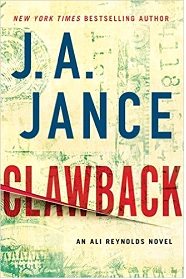Peculiar scraps of knowledge stuck to him like lint from all his jobs.
Anne Tyler
You know what lint is. It’s that stuff that rubs off on us, on our clothing, especially when we wear black. It gathers in the lint trap of the dryer. But I’m not talking about that lint.
I’m talking about all the lint that clings to us from all the jobs we’ve had, the knowledge we’ve gained through education and research, the relationships we’ve had and are still in, and other life experiences.
Everyone’s lint is different. The lint that would show up on your dryer lint trap would be of a different content and color than what would show up on mine.
The lint of your knowledge, passions and life experiences is what contributes to your voice in your writing or other creative work. I love reading work by authors who know how to really use their lint.
For example, J. A. Jance writes mystery books  set in Arizona where she grew up and now lives. Because of her deft use of her lint, her stories have a strong sense of place and of the social and cultural issues unique to an area bordering Mexico, and where water and climate shape lives.
set in Arizona where she grew up and now lives. Because of her deft use of her lint, her stories have a strong sense of place and of the social and cultural issues unique to an area bordering Mexico, and where water and climate shape lives.
Kathy Reichs writes about forensic anthropologist Temperance Brennan in her books that have been turned into the TV series, Bones. Reichs is herself a practicing forensic anthropologist. Read her books or watch the TV series, and you’ll be fascinated by the lint of forensic science and the interesting plot twists that can occur because of that very specialized field, making Reichs’ stories uniquely her own.
Often when writing instructors direct you to follow that old adage and “write what you know,” what they mean is don’t write about something you haven’t a clue about and might therefore do a poor job with.
But I suggest that writing what you know has a better, more positive aspect to it.
Write what you know offers you the opportunity to give your readers something that they might not discover or experience otherwise if you didn’t share it with them.
Because authors have done that for me, I have insight into some of the challenges of Mexican immigrants and of child brides in the Four Corners area of the Southwest. I’ve learned about how a human body will shut down and survive underwater for a certain period of time if the water is cold enough.
So what is your lint? Where have you lived and worked? What are the places you’ve visited, the sports you’ve played? What are your passions or interests or hobbies?
Are you using them to strengthen your voice in your writing or creative work?
Are you using your lint?
Save
Save